Research by Graduate Students
Current PhD students and research active MS students.
| Claire Bailey |
Claire is a current PhD student at NJIT interested in ecology, evolution, and behavior, with a focus on eusocial organisms. She has previously worked on three-dimensional honey bee nest architecture and animal behavior, and she is currently studying the only marine example of eusociality found in the Synalpheus genus of snapping shrimp. Ultimately, she is focused on the intersection of morphology, behavior, and evolution and hopes to investigate how these features influence the ecology and extinction of eusocial animals. |
|
| Shakila Behzadi |
Shakila is interested in computational, biophysical, and cellular neurobiology. She is current laboratory technician in the Severi lab and previously worked in SARS-CoV-2 research. | |
| William Botta | Will is a PhD student in Biology with a concentration in Ecology and Evolution. He got his B.S. in Marine Biology at the University of Rhode Island and his Master's in Marine Science at the University of New England studying aggression behavior in the European Green Crab. He is currently studying mass panic behavior in zebrafish in the Swarm lab and the Severi Lab. His main research interests are in intraspecies and interspecies behavior and in community ecology, with special interests in manta rays, coral reefs, and the deep sea. |
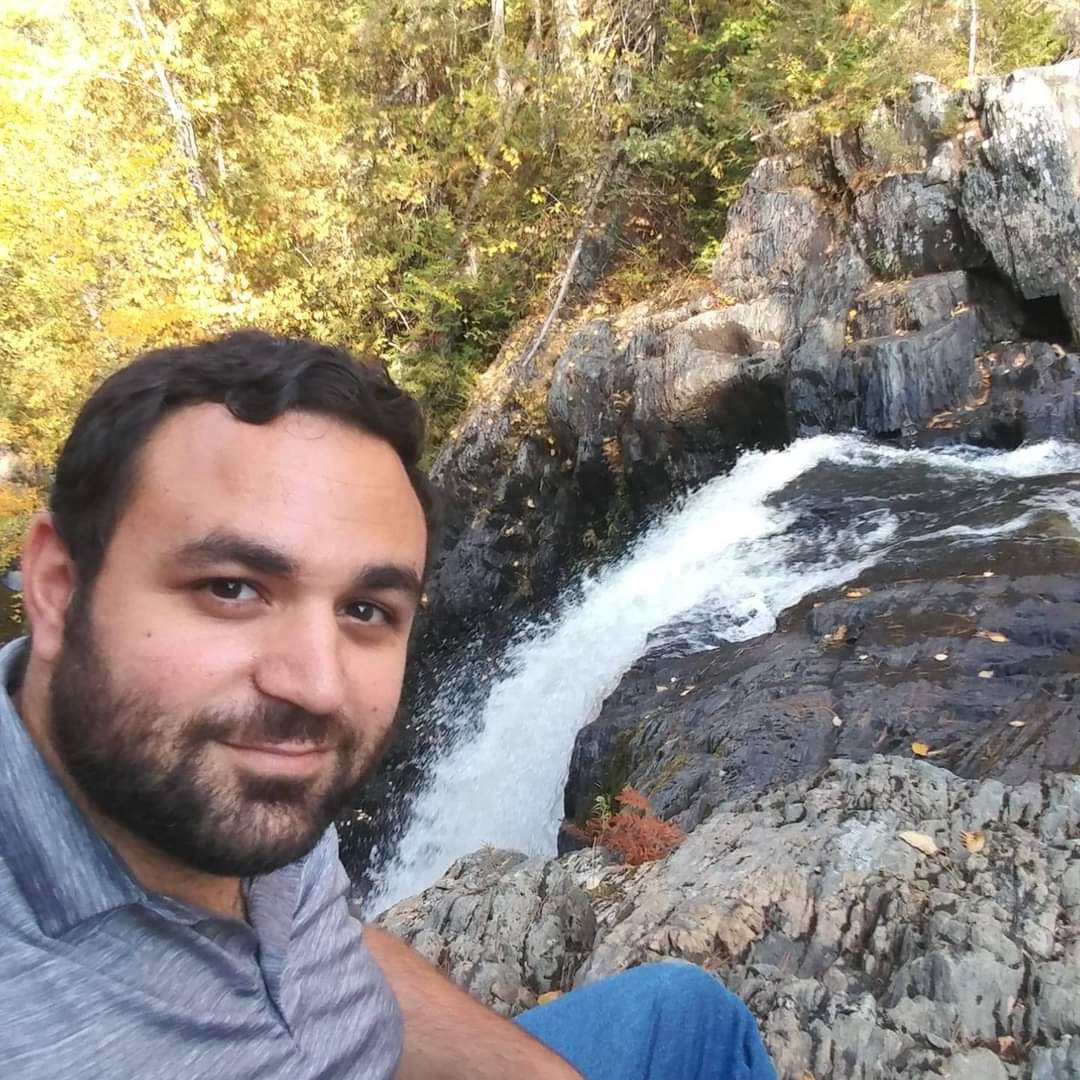
|
| Grant Bowers | Grant is a PhD student in Dr. Russell’s lab whose interests include community ecology, island biogeography, and evolutionary history. His current focus is on nearshore islands, and how their geographical characteristics influence the kinds of bird and mammal communities they host. Previous work has involved vertebrate paleontology and a Master’s degree in island biogeography of birds in the Chesapeake Bay. |
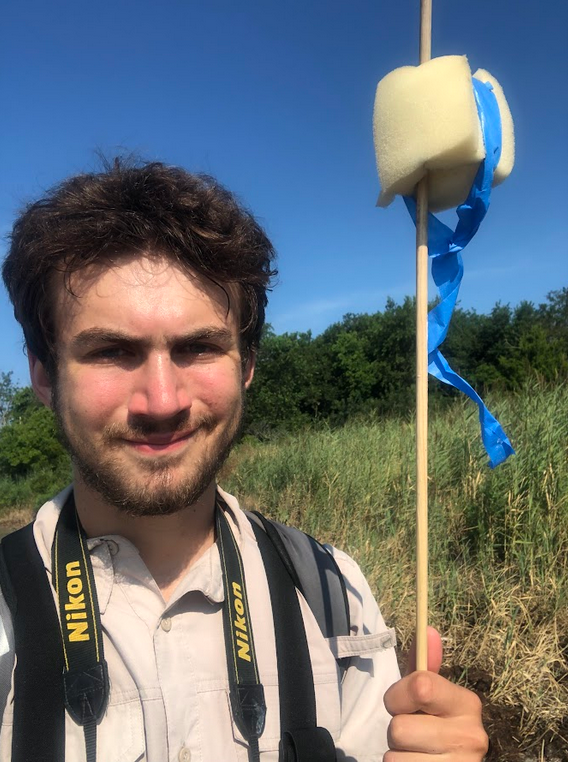
|
|
Paco Chow |
Paco is interested in blending biological and computational approaches to better understand collective intelligence. His prior work spans strict modeling of cell development as well as lab-based investigations of decision making in slime mold. |
|
| Catherine Eno |
Cat is interested in elasmobranchs (cartilaginous fish), bio-inspired design, and marine biology. Prior to joining NJIT, she participated in shark research and worked as an engineering intern at the Naval Undersea Warfare Center. | |
| Gianpiero Fiorentino | Gianpiero is a Colombian Ph.D. candidate interested in biogeography, systematics, and evolutionary relationships in ants. He completed his undergraduate degree at the National University of Colombia, studying the patterns of biodiversity of Neotropical ants using systematics and taxonomy. Following his undergraduate career, Gianpiero has worked as an assistant curator at the Institute of Natural Sciences, a research assistant with the Insects of Colombia, and as a collaborative researcher with Escuela Superior Politecnica del Chimborazo (ESPOCH) and the Charles Darwin Research Station. There, he is working on studying the effects of Biological invasion on island ecosystems in the Galapagos. Gianpiero is a proud Latino and is currently leading an initiative in Colombia focused on engaging scientific learning in rural indigenous communities in the Amazon and the Pacific. He is a Co-founder of the Neotropical ants study group (GEHN), an outreach initiative that looks to give visibility to up-and-coming Latin American researchers. GEHN provides young researchers looking to enter academia with the chance to participate in weekly talks and science communication meetings. With his passion for teaching, he hopes to one day become a university professor and continue working towards encouraging diversity and inclusion in STEM. |
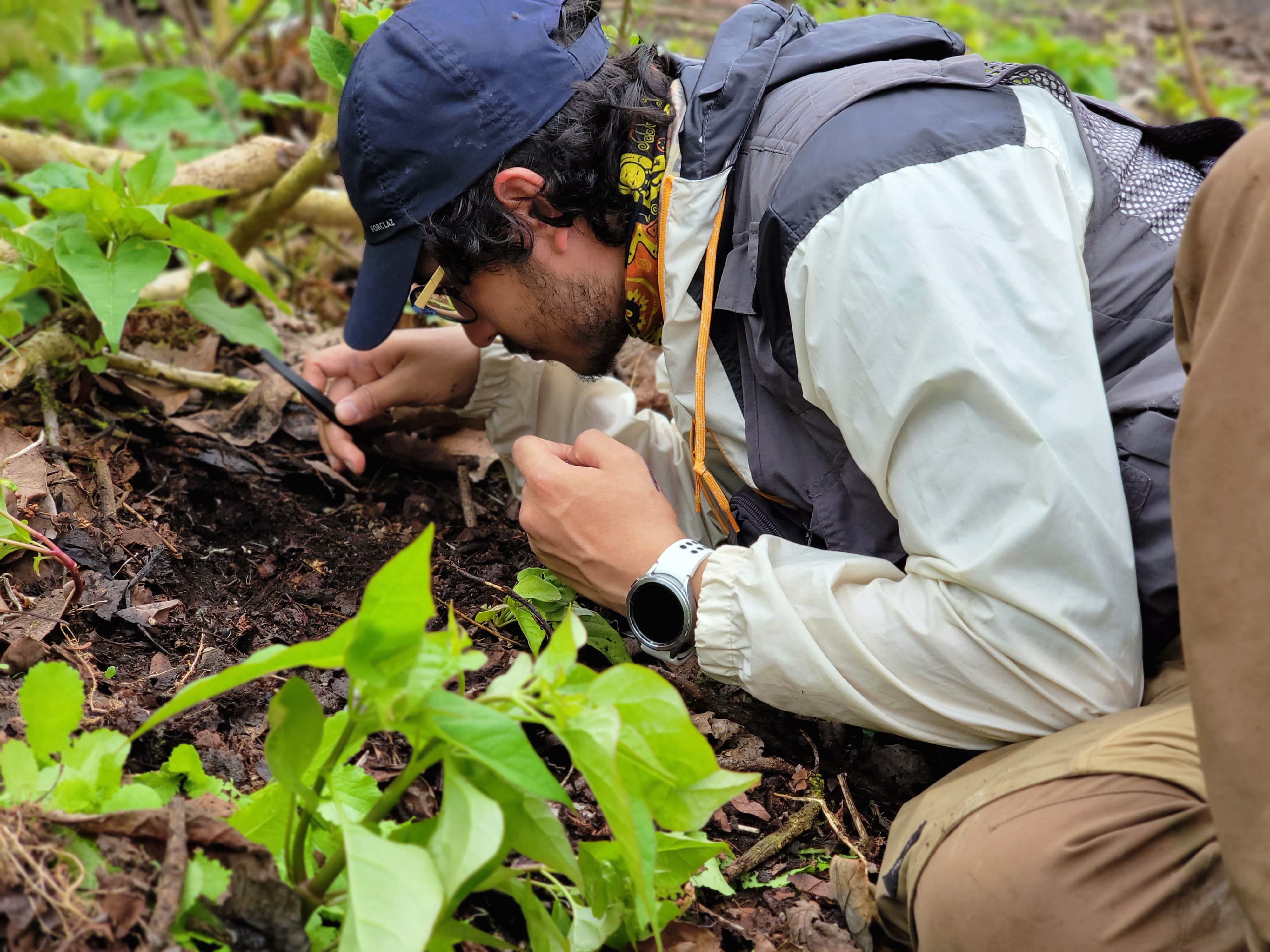
|
| Isidro Gauto | Isidro is interested in mathematical modeling of neural systems. He worked intensively on the Cortex-Striatal-Thalamic-Cortex circuit as an undergraduate and was supported by a scholarship from his undergraduate institution supported by the Consejo Nacional de Investigaciones Científicas y Técnicas, Argentina’s predominant federal funding agency. | |
| Alifia Ibkar | Alifia is interested in ecology, ecohydrological modeling, and wildfire, with an emphasis on remote sensing & GIS. Alifia recently worked on sustainable groundwater management in government settings. | |
| Elias Joseph | Elias brings a passion for marine invertebrates and scientific accessibility. They have worked on tardigrades, cnidarians, and microbes using a variety of molecular and imaging techniques and recently received an Honorable Mention for the National Science Foundation’s Graduate Research Fellowship. | |
| Roxanna Nadim | Roxy is interested in interested in the intersection of behavior, communication, and decision-making in social organisms. As an undergraduate and laboratory technician, she worked on neuroscience and comparative anatomy in vertebrate systems. | |
|
Isaiah Rejoius |
Isaiah’s scientific work is motivated by climate change and shifts in global ecosystems. As an undergraduate McNair scholar, he worked to better understand drought in the Sierra Nevada’s through model- and simulation-based approaches. |
|
| Danna Valentina Sanchez Hernandez | Danna’s undergraduate work has blended engineering and biology across human and marine systems. Most recently, she has worked to assess the hydrodynamic implications of group swimming in sharks and was awarded an undergraduate Goldwater Scholarship. | |
| Josh Schreibeis | Josh is a PhD student in Biology with a concentration in neuroscience. Prior to joining the PhD track Josh had earned his M.S. degree in bioinformatics from NJIT. He continued to follow his research interest which led him to join Professor Rostein’s lab. Josh’s research interests are firmly rooted in the field of computational biology. He is passionate about exploring novel methodologies and machine learning algorithms to advance our understanding of complex biological systems, ultimately contributing to the development of innovative therapeutics. |
|
| Anthony Sena | ||
| Jonathan Trinidad | Jonathan is a PhD candidate with Professor Golowasch. He works on identifying the molecular pathways that govern coregulation of ion channels in neurons. Using bioinformatic tools and patch clamp experiments, Jonathan hope to understand how neurons regulate their highly variable combinations of parameters to exhibit characteristic electrophysiological activity. |
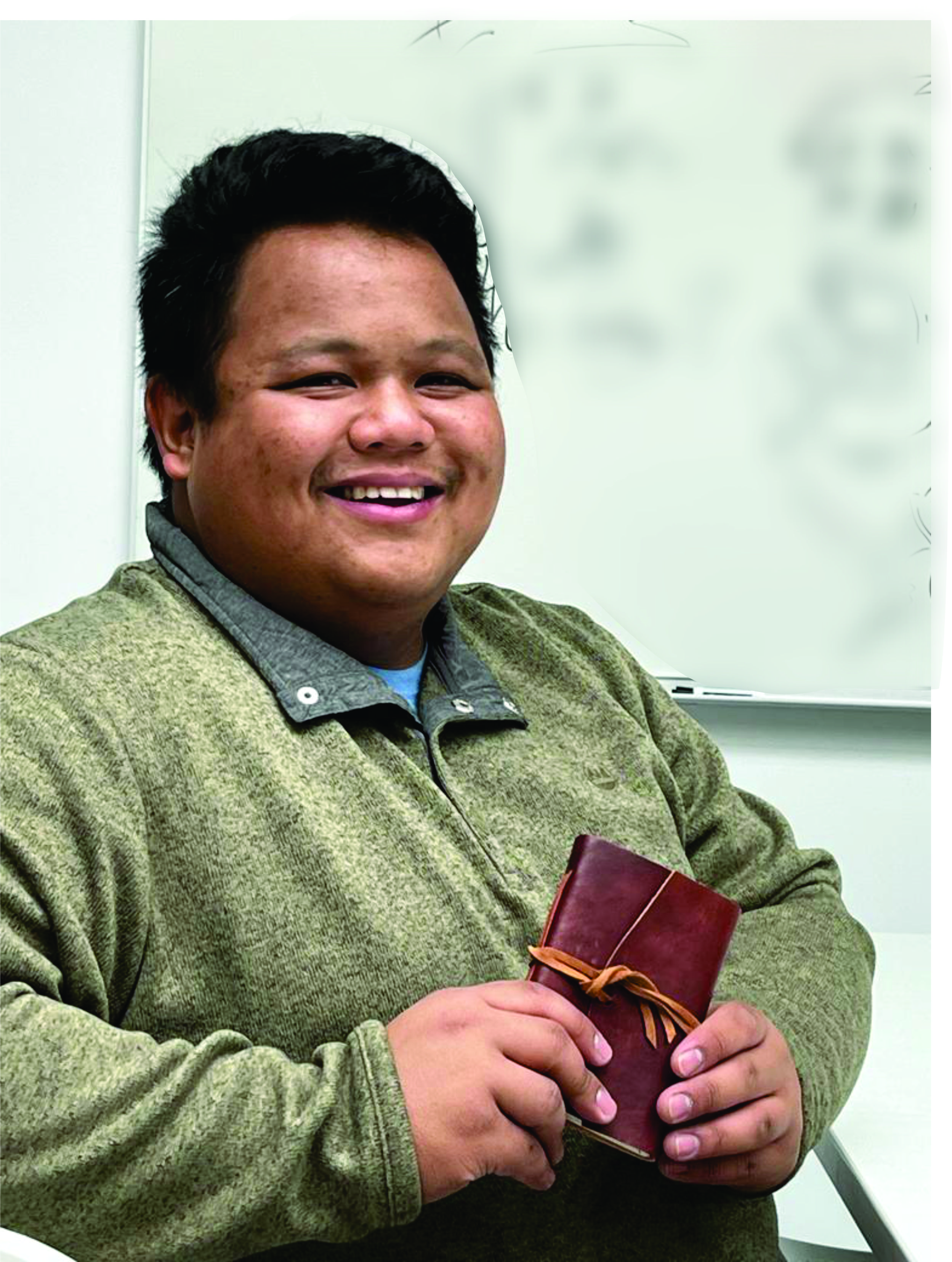
|
|
Yinghui Wang |
Yinghui’s passion is rooted in marine animals, particularly invertebrates; as an undergraduate she contributed to work on copepod evolution and comparative genetics in arthropod vision. At NJIT she will focus on Ctenophores. |
|
| Amani Webber-Schultz | Amani is a PhD candidate in the Flammang Lab studying shark functional morphology and swimming kinematics. She is particularly interested in how their scale morphology changes fluid flow around their body. |
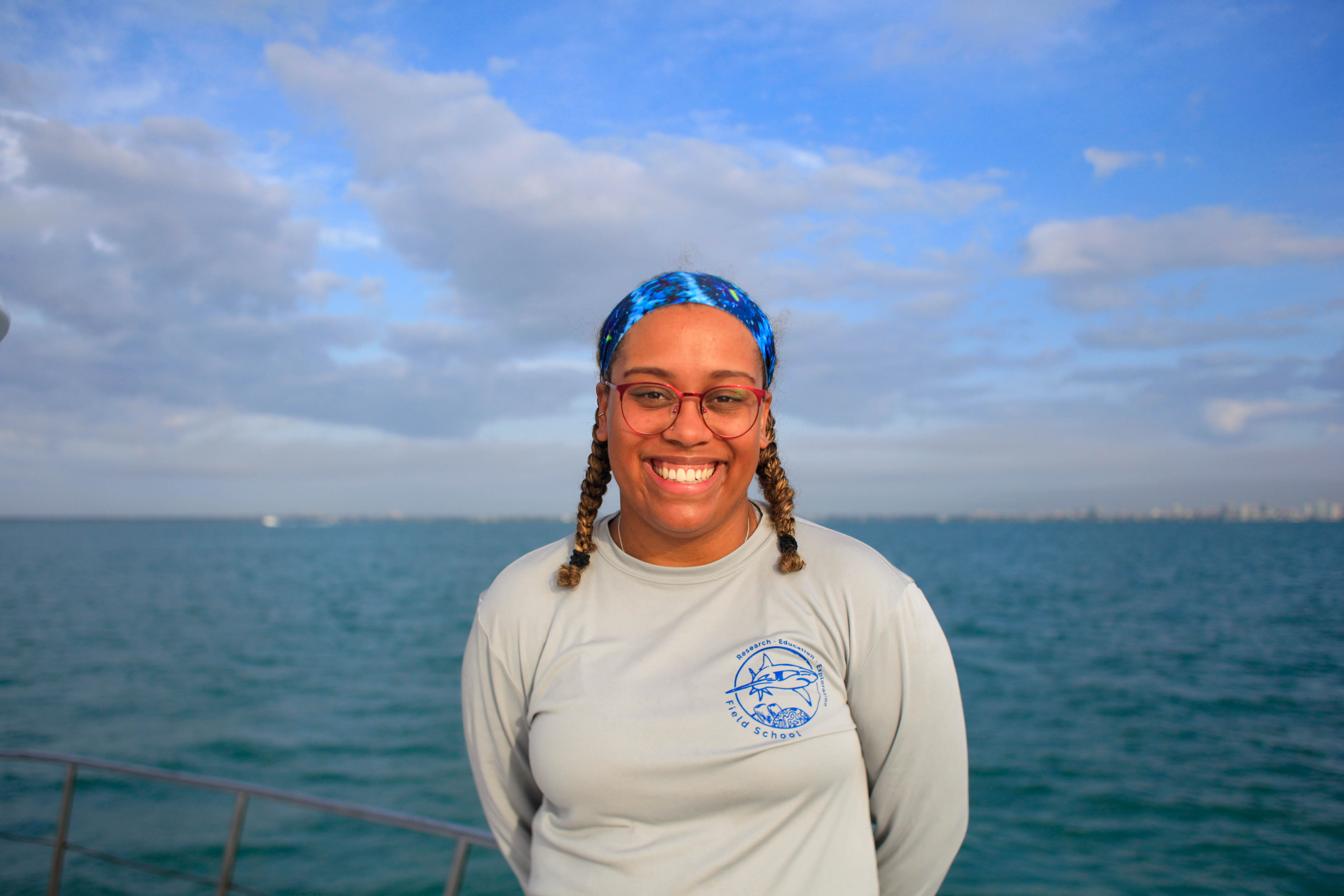
|
|
Brandon Winick |
Brandon is broadly interested in neuroscience, especially as it relates to behavior, locomotion, and neuronal adaptation. He joins NJIT after working in industry at Azenta Life Sciences with a recent focus on next-generation transcriptomic sequencing. |
|
| Yuchen Zhang | Yuchen is interested in neuromodulation and electrophysiology as viewed through the stomatogastric nervous system. He is currently a MS student at NJIT and previously worked in animal physiology and marine biology laboratory settings. |